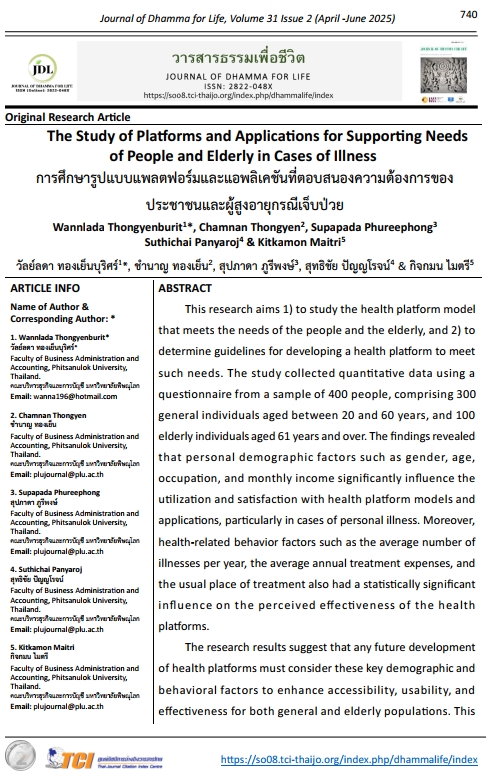The Study of Platforms and Applications for Supporting Needs of People and Elderly in Cases of Illness
Main Article Content
Abstract
This research aims 1) to study the health platform model that meets the needs of the people and the elderly, and 2) to determine guidelines for developing a health platform to meet such needs. The study collected quantitative data using a questionnaire from a sample of 400 people, comprising 300 general individuals aged between 20 and 60 years, and 100 elderly individuals aged 61 years and over. The findings revealed that personal demographic factors such as gender, age, occupation, and monthly income significantly influence the utilization and satisfaction with health platform models and applications, particularly in cases of personal illness. Moreover, health-related behavior factors such as the average number of illnesses per year, the average annual treatment expenses, and the usual place of treatment also had a statistically significant influence on the perceived effectiveness of the health platforms.
The research results suggest that any future development of health platforms must consider these key demographic and behavioral factors to enhance accessibility, usability, and effectiveness for both general and elderly populations. This indicates the importance of user-centered design in the context of digital healthcare services, which must account for the differing needs and usage patterns between age groups. Furthermore, the development should emphasize simplicity, multilingual support, and integration with local health service providers to create a more inclusive and responsive health technology ecosystem.


